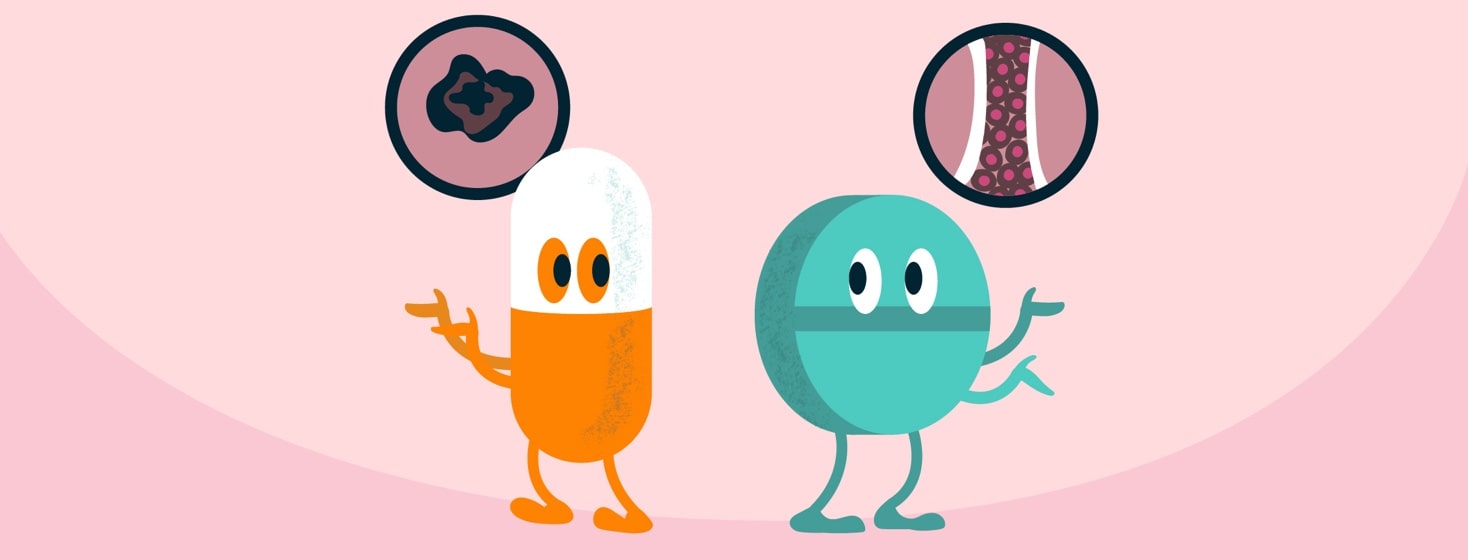Pill Story: These Two Should Talk
One of my daily medications puts me at greater risk for skin cancer, and another is supposed to decrease my risk. The one decreasing my risk makes sense, but the other would seem to be counterproductive until you know the background.
I had leukemia – acute myeloid leukemia, or AML – before I had skin cancer. Now I no longer have leukemia, but I have chronic after effects that are almost a disease in themselves. I take prednisone to treat these conditions – so far, so good – but the “miracle drug” has the downside of weakening your immune system. In my case, that means making me vulnerable to squamous cell skin cancers. I have had more of these than I can count.
Stay with me. I will circle back.
Vitamin B3 for prevention
My dermatologist recommended I take a non-prescription drug, nicotinamide (sometimes referred to as niacinamide ) that could cut down on skin cancer risk. It’s hard to know what to do, with everyone recommending this or that, but this comes from a reputable source. Here is a summary from the Journal of American Health and Drug Benefits:
“The prevention of common skin cancers and pre-cancers is possible by taking an inexpensive, widely available, oral pill twice daily. The pill—the vitamin B3 supplement called nicotinamide—cut the rate of new squamous-cell and basal-cell skin cancers by 23% compared with placebo after 1 year among patients at high risk for skin cancer. Nicotinamide also reduce one's risk for developing actinic keratosis, a common pre-cancer of the skin.”1
The pill is widely available. I got it first at a health food store and then saw it at my local pharmacy and on line. I take one a day.
Now, back to the prednisone risk
For the leukemia part of the story, I have the rare distinction of having had chemotherapy and a stem cell transplant four times. Side effects from transplants are all over the place. One is a susceptibility to squamous cell cancers. (Sigh.) These obviously need to be controlled by skin cancer treatment.
My doctor prescribed prednisone after my last transplant, 10 years ago, to treat high liver enzymes that showed up in my blood tests. Prednisone also treats my Graft vs. Host Disease (GVHD), a condition in which donor cells attack the recipient’s.
It can happen anywhere
It can happen anywhere; mine happens to be on my skin, though it is not skin cancer. It manifested a couple of years with skin that started to tighten in some places and get bumpy and lumpy in other areas. I have also GVHD in my gut. Loverly!
Things are pretty much in control, so I occasionally ask my doctor if I can get off prednisone. He always says no. He doesn’t want to rock the boat. I can see his point. I feel pretty confident that going to the dermatologist every three months will help me keep on top of things.

Join the conversation